Kristin Waters - Maria W. Stewart and the Roots of Black Political Thought
Here you can read online Kristin Waters - Maria W. Stewart and the Roots of Black Political Thought full text of the book (entire story) in english for free. Download pdf and epub, get meaning, cover and reviews about this ebook. year: 2021, publisher: University Press of Mississippi, genre: Politics. Description of the work, (preface) as well as reviews are available. Best literature library LitArk.com created for fans of good reading and offers a wide selection of genres:
Romance novel
Science fiction
Adventure
Detective
Science
History
Home and family
Prose
Art
Politics
Computer
Non-fiction
Religion
Business
Children
Humor
Choose a favorite category and find really read worthwhile books. Enjoy immersion in the world of imagination, feel the emotions of the characters or learn something new for yourself, make an fascinating discovery.
- Book:Maria W. Stewart and the Roots of Black Political Thought
- Author:
- Publisher:University Press of Mississippi
- Genre:
- Year:2021
- Rating:3 / 5
- Favourites:Add to favourites
- Your mark:
Maria W. Stewart and the Roots of Black Political Thought: summary, description and annotation
We offer to read an annotation, description, summary or preface (depends on what the author of the book "Maria W. Stewart and the Roots of Black Political Thought" wrote himself). If you haven't found the necessary information about the book — write in the comments, we will try to find it.
Maria W. Stewart and the Roots of Black Political Thought tells a crucial, almost-forgotten story of African Americans of early nineteenth-century America. In 1833, Maria W. Stewart (18031879) told a gathering at the African Masonic Hall on Bostons Beacon Hill: African rights and liberty is a subject that ought to fire the breast of every free man of color in these United States. She exhorted her audience to embrace the idea that the founding principles of the nation must extend to people of color. Otherwise, those truths are merely the hypocritical expression of an ungodly white power, a travesty of original democratic ideals. Like her mentor, David Walker, Stewart illustrated the practical inconsistencies of classical liberalism as enacted in the US and delivered a call to action for ending racism and addressing gender discrimination.
Between 1831 and 1833, Stewarts intellectual productions, as she called them, ranged across topics from true emancipation for African Americans, the Black convention movement, the hypocrisy of white Christianity, Black liberation theology, and gender inequity. Along with Walkers Appeal to the Coloured Citizens of the World, her body of work constitutes a significant foundation for a moral and political theory that is finding new resonance todayinsurrectionist ethics.
In this work of recovery, author Kristin Waters examines the roots of Black political activism in the petition movement; Prince Hall and the creation of the first Black masonic lodges; the Black Baptist movement spearheaded by the brothers Thomas, Benjamin, and Nathaniel Paul; writings; sermons; and the practices of festival days, through the story of this remarkable but largely unheralded woman and pioneering public intellectual.
Kristin Waters: author's other books
Who wrote Maria W. Stewart and the Roots of Black Political Thought? Find out the surname, the name of the author of the book and a list of all author's works by series.

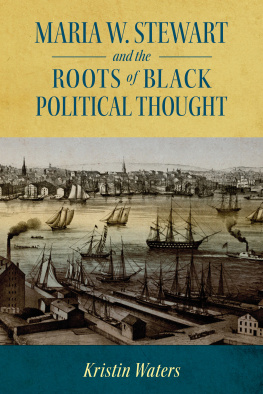
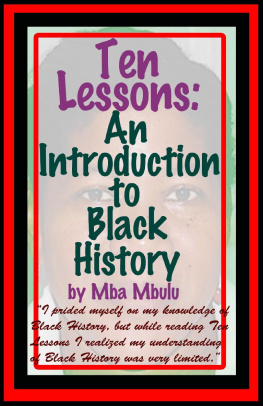

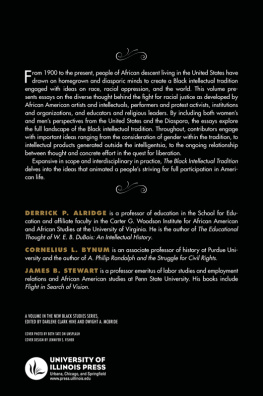
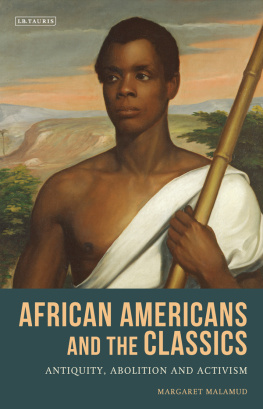
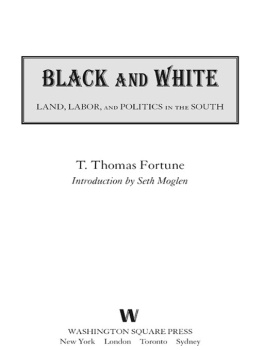
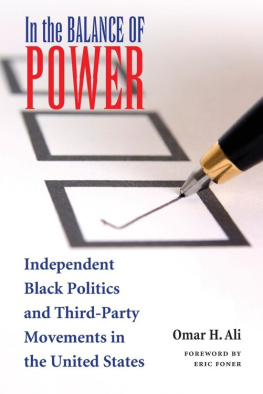

 and the
and the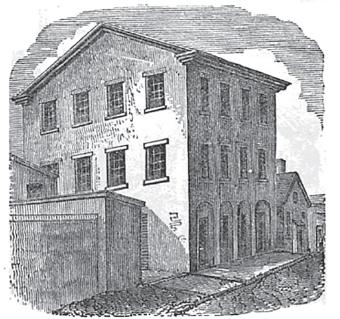 First Independent Baptist Church, Belknap St., Boston, also referred to as the African Baptist Church and the African Meeting House. [Isaac Smith] Homans, Sketches of Boston, Past and Present. 1851.
First Independent Baptist Church, Belknap St., Boston, also referred to as the African Baptist Church and the African Meeting House. [Isaac Smith] Homans, Sketches of Boston, Past and Present. 1851.